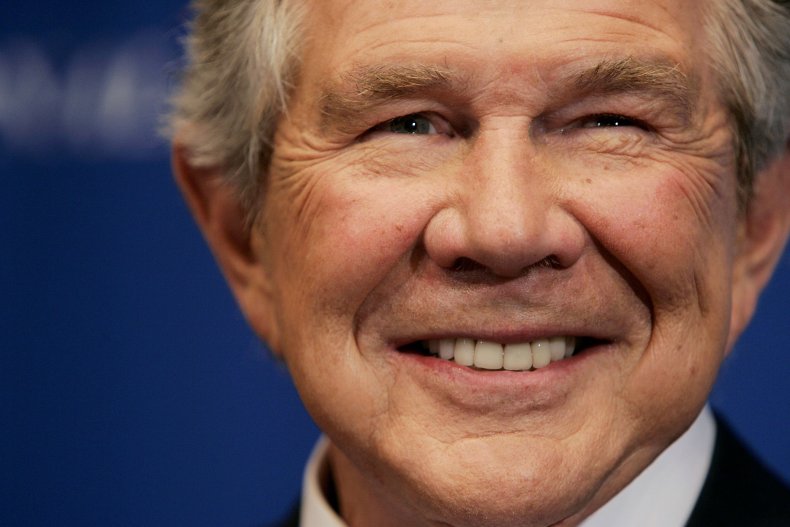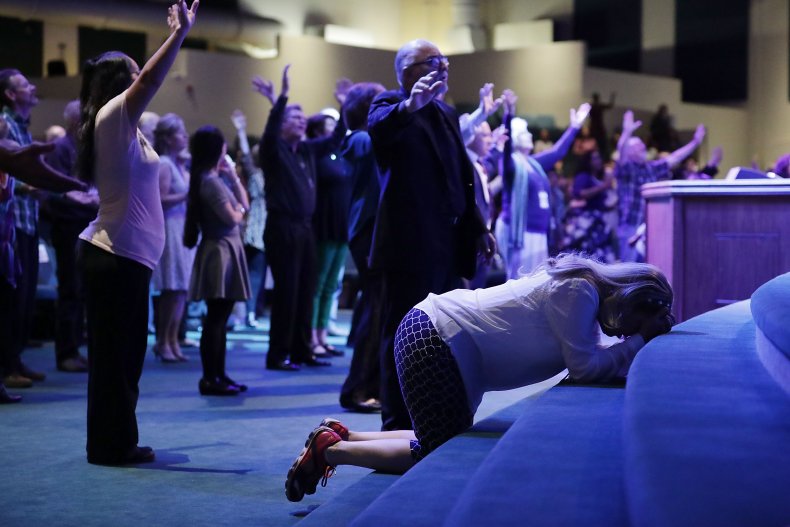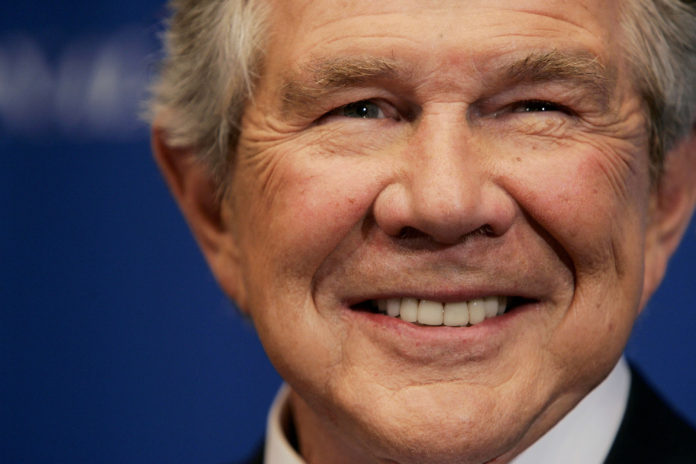Pat Robertson broke the internet yesterday with a viral clip of the televangelist discussing the recent cases of police shooting Black Americans.
“You know I am pro-police, folks. I think we need the police, we need their service, and they do a good job,” he said on his show The 700 Club. “But if they don’t stop this onslaught, they cannot do this.”
Many tweeted their surprise that the ultra-conservative Robertson would be so sympathetic to the cause of opposing police brutality. But I was not among them.
As a gay man in the South, I have a long history of finding common ground with white evangelicals. The truth is, they’re just not the “swamp water, alligator-wrestling bigots” that’s caricatured as, to quote Divine Secrets of the Ya-Ya Sisterhood (one of my favorite movies about the South). What I’ve learned is that white evangelicals have consistently shown an ability to see the humanity in victims of oppression, even if they disagree on the bigger social issues.
As a teenager, I was bullied relentlessly for being gay. Slurs were hurled at me daily, threats against me were so serious the principal got involved, and at one point my friends thought I had been gay bashed (it was another, closeted, boy). Through all of this, I remember one boy, a devout evangelical, who stood up for me time and again. He showed me kindness, befriended me, and had my back throughout the crucible that was high school.

Win McNamee/Getty Images
Some of my fellow travelers on the left no doubt think I am setting the bar too low. Recognizing the humanity in Black and gay people ought to be the bare minimum, they would argue. I do not disagree. But to sneer at Robertson or anyone on the right for expressing support for one cause or policy without embracing the broader social and political agenda of the left is to miss an opportunity to engage a potential ally and affect substantive policy change.
On the left, we are too quick to demand ideological purity; if you do not sign up to every one of our social causes, you are a hopeless bigot. But that simply isn’t the case. Opposing gay marriage might be (in my opinion) a homophobic view, but that boy who befriended me—he is now an evangelical preacher—stood up for me when few, even among the adults at my school, would.
Similarly, Pat Robertson might not be ready to embrace the full agenda of the Black Lives Matter movement, but his comments open a door for further dialogue on issues of race and policing.
These conversations can sometimes be uncomfortable, but they can have surprising results. My maternal grandmother is a strident evangelical conservative, but she and I have had many fruitful discussions about the racism we both see inherent in policing. She and my mother both voted for Donald Trump twice, yet are both horrified by what they see as the murder of George Floyd. They may not be as eager to abolish the police as I am, but they see a problem, and that is the first step towards finding a solution.
Indeed, there are signs that the evangelical movement is involved in the broader national reckoning on race. The Southern Baptist Convention has been speaking out more against racism in America. “The church should call white supremacy what it is: terrorism,” wrote Russell Moore, the president of SBC’s Ethics & Religious Liberty Commission, following the 2017 Charlottesville, Virginia Unite the Right rally. And following the insurrection at the Capitol in January, more than a hundred evangelical leaders signed an open letter warning of “radicalized Christian nationalism.”
I am not naïve enough to think that every evangelical is having a come-to-Jesus moment. As the writer Chrissy Stroop pointed out when that letter was published, 100 leaders is a fraction of just the thousands of Southern Baptist congregations in the U.S. And the number of white evangelical Christians who see police brutality against Black people as isolated incidents rather than endemic has remained consistently above 70% since 2015.

Chip Somodevilla/Getty Images
This does not mean they are inherently racist, though. As Professor Nancy D. Wadsworth wrote last year in the Washington Post, some evangelicals have “difficulty acknowledging the power of structural and systemic racism because of their focus on free-will individualism; their belief that ‘racism’ primarily means personal prejudice; and their notion that social justice Christianity violates the gospel.”
But there has also been a move towards multiracial congregations and some evangelical support for DREAMers.
These developments, like Pat Robertson’s comments, are welcome progress. The left should not dismiss them as too little too late, but rather use them to engage evangelicals on the issues that matter to us. Not every white evangelical will agree with us on every issue, but some might surprise us.
Besides, preaching to the choir does little to advance social justice. We need to win new converts to our cause. That begins by removing the plank from our own eye so we can see beyond the stereotype we ourselves have created.
Skylar Baker-Jordan writes about the intersection of identity, politics, and public policy based in Tennessee.
The views in this article are the writer’s own.








